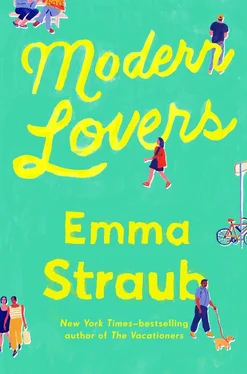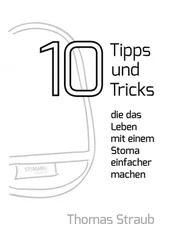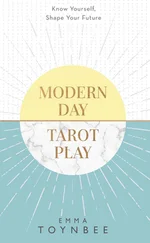Someone knocked on the door to the bathroom. “Yeah,” Jane said. She stared at herself in the mirror. She was over fifty, with moles she’d been meaning to get checked out and a lone chin hair that sprouted up again every time she plucked it. Life was a fucking disaster, but it was time to organize the lunch prep and to call the butcher, and so Jane unlocked the door.
The Mary Ann O’Connell Realty Group was a boutique firm, with just five agents. Elizabeth was the only one who didn’t have the last name O’Connell — in addition to eighty-three-year-old Mary Ann, there were her two children, Sean and Bridget, plus Sean’s wife, Deirdre. The office was on the corner of Cortelyou and East Sixteenth Street, half a block from the rumbling Q train. Elizabeth and Deirdre shared a desk, which Elizabeth had always found a bit odd, that Sean would rather share a workspace with his sister than with his wife, but the O’Connells were nothing if not odd, and so it was to be expected. Family businesses were deeply complicated organisms, and it was almost always best to stay as far away from the decision-making processes as possible. Elizabeth would happily have worked from home, as she had when Harry was young, but Mary Ann got nervous when she didn’t see her crew hard at work or hear the jingle of keys as they left for a day of showings. Her office was in the back, and the door was never closed. When you came in or went out, even if it was just to get a sandwich, Mary Ann’s white corona of hair would begin to vibrate slightly, like a rung bell. Deirdre liked to joke that her mother-in-law had been struck by lightning as a child and the jolt reappeared whenever she thought she was about to make money. She also liked to joke that the only reason she and Sean were allowed to get married was that on paper she (born in Trinidad) sounded as Irish as he did. Deirdre was the only O’Connell whose company Elizabeth actually enjoyed.
It was a glorious day outside — not yet the full summer warmth, but balmy enough for people to bare their arms and legs without the fear of goose pimples. Those windows of time were so short in New York City, which was in all ways a place of extremes. They’d thought about leaving, for that reason among many others, but the steadiness of California’s seventy-two-degree days didn’t appeal either. It was good to have things to complain about, to build character. Elizabeth leaned back in her chair and admired what she could see of the day through the window. The three desks were arranged by seniority, which meant that Elizabeth, a company veteran of only a decade, was sitting three feet from the sidewalk outside.
Sean walked in from lunch after a morning full of showings — early summer was always their biggest season, and inventory was high. The bell tinkled, and Elizabeth heard Mary Ann start asking Sean questions before he’d passed fully through the doorway. He nodded a greeting at Elizabeth and kept walking into his mother’s office. Elizabeth’s cell phone rang and she answered without looking at the caller ID.
“Hello?” she said. There was a pause, then a click.
“Holding for Naomi Vandenhoovel,” a young woman on the other end said.
“Excuse me?” Elizabeth said. She put a finger in her right ear to block out a fire truck roaring down the street. “Hello?”
“Lizzzzzzzy,” another voice said. “Thank you so much for speaking with me. I so appreciate it.”
“I’m sorry, who is this?” Elizabeth swiveled her chair away from the window. The whole office dotted with sunspots. “This is Elizabeth Marx,” she said, wondering if someone had called the wrong Elizabeth, scrolling quickly through the E section of her contacts.
“Elizabeth, it’s Naomi . Naomi Vandenhoovel . I’ve been in touch about the rights for the Lydia biopic. I work for the studio. We’ve e-mailed.”
“Oh, Naomi, yes,” Elizabeth said. She turned back around and opened her e-mail, frantically searching for Naomi’s most recent missive. “I’ve been meaning to get back to you.”
“Listen, Elizabeth, I know it seems crazy, after all this time, to just sign over the rights to your work and to your story, but this is a go picture. Do you know how hard it is to get a movie made these days?” There was a whooshing sound. “Sorry, I’m in my car. Let me close the window.”
“But how did you call me from your car? Your person just had me on hold!” Elizabeth was asking a serious question, but Naomi only laughed.
“I know, right?” she said. “Anyway, we really need the song. You know we need the song. And the life rights. I know that sounds scary — like, LIFE RIGHTS , but it’s just a fancy term for agreeing for there to be a character who may or may not have anything in common with you. Really. I can give you a few more weeks to work on your husband, but that’s really it. They want to start shooting in the fall. Don’t you want millions of teenage girls to go to the movies and see some badass fucking chicks playing rock ’n’ roll? Like, wahhhhhhh on the whammy bar, or whatever, you know? Don’t you want to be an inspiration? Forget about Lydia — just think about a girl in the middle of nowhere who thinks life is sucky and boring and then she sees this movie at the mall and she goes and buys a guitar and starts writing songs in her bedroom.”
Elizabeth closed her eyes. She hadn’t been able to talk to Andrew about Lydia at all. He’d gone to extraordinary lengths to avoid the conversation — he’d booked dentist appointments, taken their otherwise neglected car in for an oil change. This imaginary girl in her bedroom, though. That might work. Her life saved by music, by the movie, by them! It was certainly working on Elizabeth. She felt tiny tears forming, as suddenly as with a truly excellent Kleenex commercial. “I’ll try.”
“I’ll send over the forms again. The world needs to see this story, and to hear your song. Anecdotally, it’s my favorite song of all time. I’m sure you hear that a lot, but it’s true. I have the chorus tattooed on my rib cage.”
“You don’t,” Elizabeth said, though it wasn’t the first time she’d heard of such a thing. Once she’d seen a whole slide show of them on BuzzFeed.
“I do!” Naomi said. “I’ll send you a photo.”
“You really don’t have to,” Elizabeth said.
“Oh, I want to! It looks fucking great!”
Elizabeth’s e-mail dinged, and she swiveled around to look. Sure enough, there was a rib cage with the words I will be calm calm calm calm in cursive. “Wow,” Elizabeth said. “Wait, how did you just send that, aren’t you driving?”
“I was so tan this summer, it was sick,” Naomi said, ignoring the question. California was a terrifying place. “Anyway, sign the forms and get them back to me as soon as you can, okay? Thank you so, so much.”
“I will,” Elizabeth said, not meaning to agree, but just that she’d let her know. She was nothing if not polite. Harry was always teasing her for calling to cancel restaurant reservations or appointments at the Apple Store Genius Bar. No one cares, Mom, he’d say, but Elizabeth believed in courtesy. She waited for Naomi to say more, but realized she was already gone.
The garage was unfinished — unlike some of their neighbors’, who had converted the spaces into playrooms or offices, and put in plumbing and heat and wood floors, Andrew and Elizabeth had the old-fashioned kind, with rusting shovels and half-empty cans of paint. They pulled the car in only when huge snowstorms were expected — otherwise, the large center of the space was empty, with a rug from Andrew’s parents’ house and two creaky wooden chairs. Elizabeth’s small Marshall amp was on her side, and Andrew’s boxy Orange amp was on his. Andrew rolled the garage door high enough for them to walk under, and then slid it halfway back down to the ground. People walking along the sidewalk could see their legs, maybe, but only if they were really looking, and there were far more exciting things to look at. Middle-aged rock ’n’ roll hobbyists were about as thrilling as old ladies gardening, and significantly more embarrassing. Andrew knew how things looked.
Читать дальше












